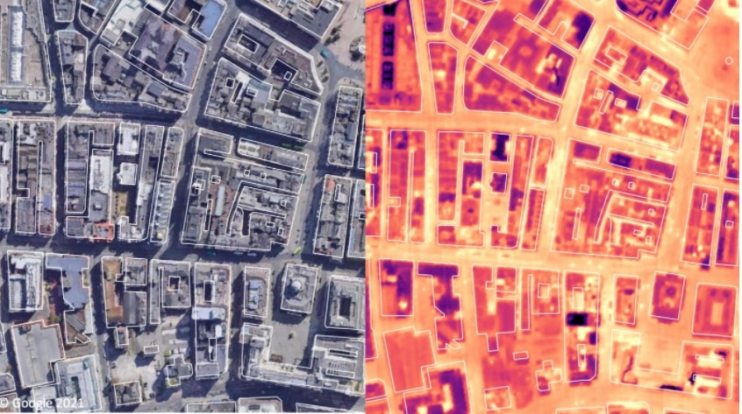London’s Satellite Vu bags £15m in Series A as it plots to decarbonise the housing sector

London-based space tech scale-up Satellite Vu has raised £15m in Series A funding, as it readies plans to launch seven thermal and infrared imaging satellites into orbit.
The satellites will be able to provide real-time data on how green, or energy efficient, every building on the planet is – as the UK seeks to decarbonise its housing sector.
The funding rally, led by London-listed Seraphim Space Investment Trust, saw tech-only venture capital firm Draper Esprit also pile into the fundraiser, alongside Ford Family Trust’s Stellar Solutions.
Chief investment officer at Seraphim, James bruegger said: “Our significant increase in investment shows the enormous promise that high resolution infrared satellite data holds in solving serious issues impacting the world.
“With 40 per cent of all carbon emissions coming directly / indirectly from buildings, finding a way to pinpoint the worst energy wasting buildings at global scale is a pressing issue if the world is to achieve net zero.”
COP26
It follows a £3.6m seed funding round just six months ago, as Vu looks to muscle in on the UK’s blossoming space and satellite sector.
Vu plans to launch its first satellite in October next year, which will give landlords, funders, insurers and governments and regulators access real-time information, helping building stock become more energy efficient.
“With COP26 just around the corner and Europe and parts of the USA having suffered the hottest summer on record, there is growing acceptance that we need to act now to try to mitigate the impacts of climate change on our everyday lives and economy,” CEO Anthony Baker explained.
“But while many think of industries such as aviation as some of the least sustainable, the built environment is actually one of the primary polluters across our globe.”
He added that regular individual monitoring of buildings is too expensive and time consuming, which means sustainable ratings are “often years out of date”.
“This latest round of funding means we can look ahead to the launch of our first satellite in late 2022 and start the process of securing delivery slots for the remaining six.”